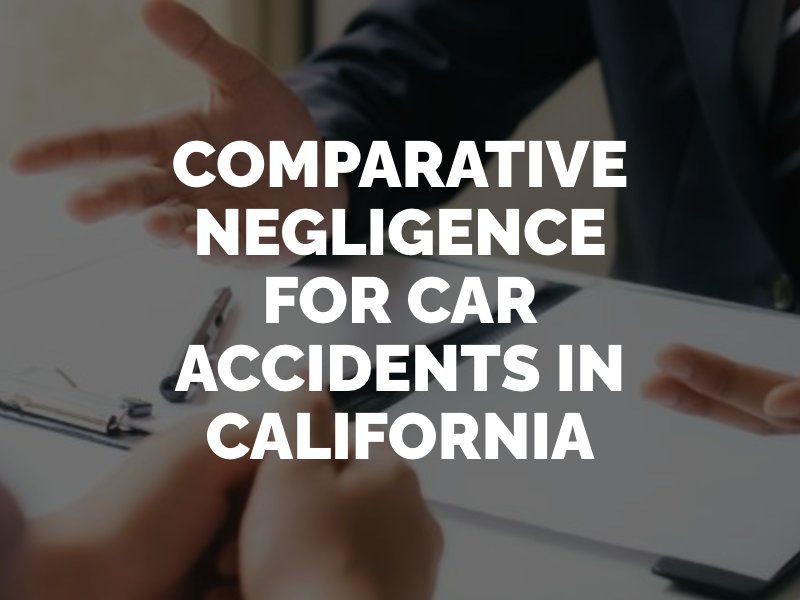How California’s Comparative Negligence Laws Apply to Car Accidents
In some car accident cases in California, liability – meaning legal and financial responsibility – is clear. In others, however, multiple parties share liability for a single crash. In these cases, California’s comparative negligence law permits injured accident victims to receive at least partial financial compensation from the other at-fault party.

What Is California’s Comparative Negligence Law?
The Civil Code of California § 1714 states: “Everyone is responsible, not only for the result of his or her willful acts, but also for an injury occasioned to another by his or her want of ordinary care or skill in the management of his or her property or person, except so far as the latter has, willfully or by want of ordinary care, brought the injury upon himself or herself.”
This is the state’s comparative negligence law, and it can reduce a plaintiff’s (injured party’s) financial recovery if that plaintiff was partially responsible for his or her accident and injury. Since California uses a pure comparative negligence law, a plaintiff is still eligible for financial compensation with any degree of fault short of 100 percent.
How Can the Comparative Negligence Law Affect Your Car Accident Claim?
In a car accident case, an investigation will be done by a car insurance company to ascertain who is at fault. This will determine who is liable for the victim’s injuries under California’s fault-based insurance system. If both parties involved in an insurance claim share the blame for the car accident, the comparative negligence law can be used to reduce the plaintiff’s financial recovery.
California Civil Jury Instructions 405 states that if a defendant can prove that a plaintiff was negligent and that this contributed to the plaintiff’s injury, the jury can assign a percentage of fault to the plaintiff and reduce the award given by an equivalent amount. For example, if a plaintiff is assigned 20 percent of the fault for a car accident and awarded $100,000 in damages, the award would be reduced by 20 percent ($20,000) to $80,000.
Some states cap the percentage at which a plaintiff can be at fault for an accident and still recover compensation – typically around 51 percent. In these states, if a plaintiff is found to have the majority share of fault for an automobile accident, he or she will not be able to recover any compensation. In California, however, this is not the case; as long as another party is at fault, the plaintiff can recover partial compensation.
How a Car Accident Lawyer Can Help
If your car accident case goes to court in California, the odds are high that the defendant (typically, the other driver) or their attorney will raise a defense involving comparative negligence. The other driver may claim that you were responsible for causing the car accident, and that your financial award should therefore be reduced accordingly.
An experienced Los Angeles car accident attorney can help by arguing that the defendant has not provided sufficient evidence to prove their claim. Proving negligence is not an easy task; your attorney can poke holes in the defendant’s case and push for maximum financial compensation by demonstrating that the other driver bears the majority share of fault for the crash.
A specialized personal injury attorney in Los Angeles has access to important resources that can strengthen your car insurance claim, such as connections to medical experts and car accident reconstructionists. By collecting evidence such as police reports, camera footage, photographs, eyewitness statements and medical records, your lawyer can build a strong case for you and maximize your financial recovery as much as possible.
Contact Rose, Klein & Marias LLP for a Free Case Review
If you were involved in a car accident due to someone else’s negligence, you should not have to pay for your own medical bills or property repairs. Schedule a free consultation with the attorneys at Rose, Klein & Marias LLP to discuss how comparative negligence may affect your case.
